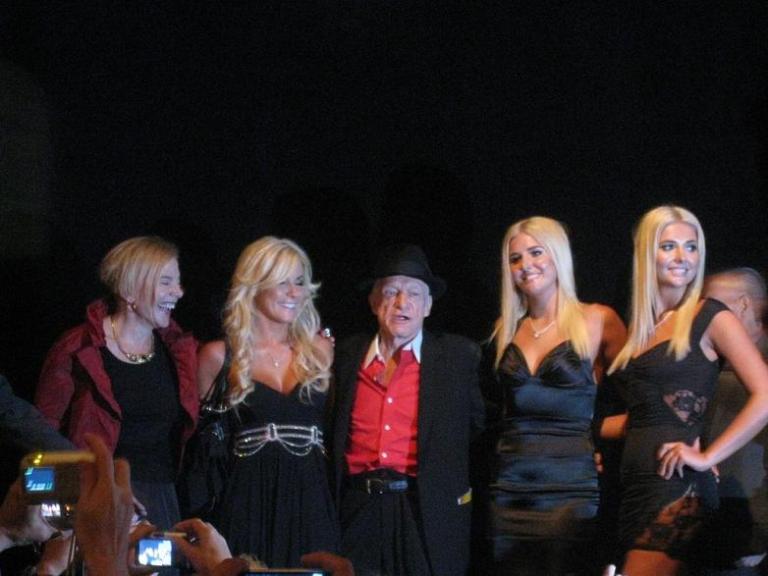The New York Times token conservative Ross Douthat gives what I consider to be the definitive summary judgment about Hugh Hefner (the earthly judgment, that is). And yet, another conservative, Ben Domenich, while he expresses disapproval, goes on to praise Hefner for his entrepreneurial spirit, for appreciating the “finer things” (such as jazz, fine dining, gentlemanly manners, etc.), and for championing heterosexual masculinity, something now under attack.
I agree with Douthat that this conservative defense of Hefner is “a lot of garbage.” Read both essays. What do you think? Are we seeing two different kinds of conservatism here?
From Ross Douthat, Speaking Ill of Hugh Hefner – The New York Times:
Hugh Hefner, gone to his reward at the age of 91, was a pornographer and chauvinist who got rich on masturbation, consumerism and the exploitation of women, aged into a leering grotesque in a captain’s hat, and died a pack rat in a decaying manse where porn blared during his pathetic orgies.
Hef was the grinning pimp of the sexual revolution, with quaaludes for the ladies and Viagra for himself — a father of smut addictions and eating disorders, abortions and divorce and syphilis, a pretentious huckster who published Updike stories no one read while doing flesh procurement for celebrities, a revolutionary whose revolution chiefly benefited men much like himself.
From Ben Domenech, Hugh Hefner’s Legacy Is About More Than Sex, The Federalist:
Hefner embodied a culture of libertinism and excessive excess, providing his readers a larger-than-life example of what one could do, if not necessarily what one should do. He also showed how the American entrepreneurial idea can be applied: with a thought and a little gumption, one can build an empire, and even if the magazine sales have dipped and fewer people read it for the articles, that sparkly little bunny with a bow tie slapped on all manner of product is as profitable as ever. . . .
The Playboy Philosophy was inherently a part of the sexual revolution, yes, and Buckley was right to critique it. But it is apparent in retrospect that Hefner was not, as he perceived it, the captain of that revolution. What separates him from the more lurid members of his industry is an appreciation for manners and a particular form of American masculinity: he advised you to be a gentleman, not a cad, in your pursuit of the centerfold or the girl next door. . . .
Hefner’s death comes at a time of deep confusion for the country about all sorts of things sexual in nature. Embedded in his work was the idea that what we appreciate in one another isn’t sexless. It’s deeply rooted in our differences. Without those differences, sex itself becomes much less interesting. So while he was derided as selling prurience and stereotypes to the profane and stereotypical, he was actually celebrating the sexual complementarity that has bound men and women together since the dawn of time. The fact this idea has become a problematic one in some pockets of American culture is one Hefner would doubtless find absurd – he built an entire empire on it, after all.
Read my take. As for Hefner being an icon of a masculinity that appreciates the “otherness” of women, I deny that there is anything traditional about him. True heterosexual masculinity is fulfilled in marriage, in caring for a woman, having children with her, and caring for, supporting, and protecting his family. There is nothing romantic, chivalrous, or loving in Hefner trouncing around in his pajamas with two or three scantily clad women in bunny outfits holding onto his arm.
Photo by Mark Dunne from Toronto, Canada (Hugh Hefner and Playboy Bunnies – TIFF 09) [CC BY-SA 2.0 (https://creativecommons.org/licenses/by-sa/2.0)], via Wikimedia Commons














